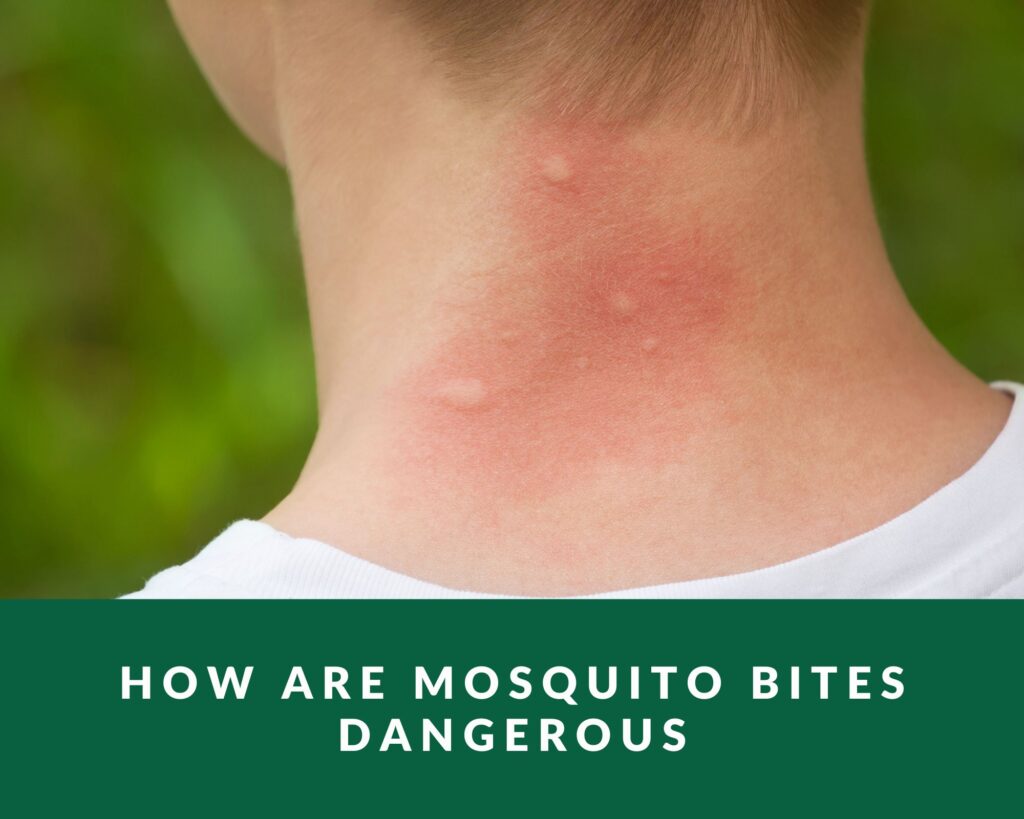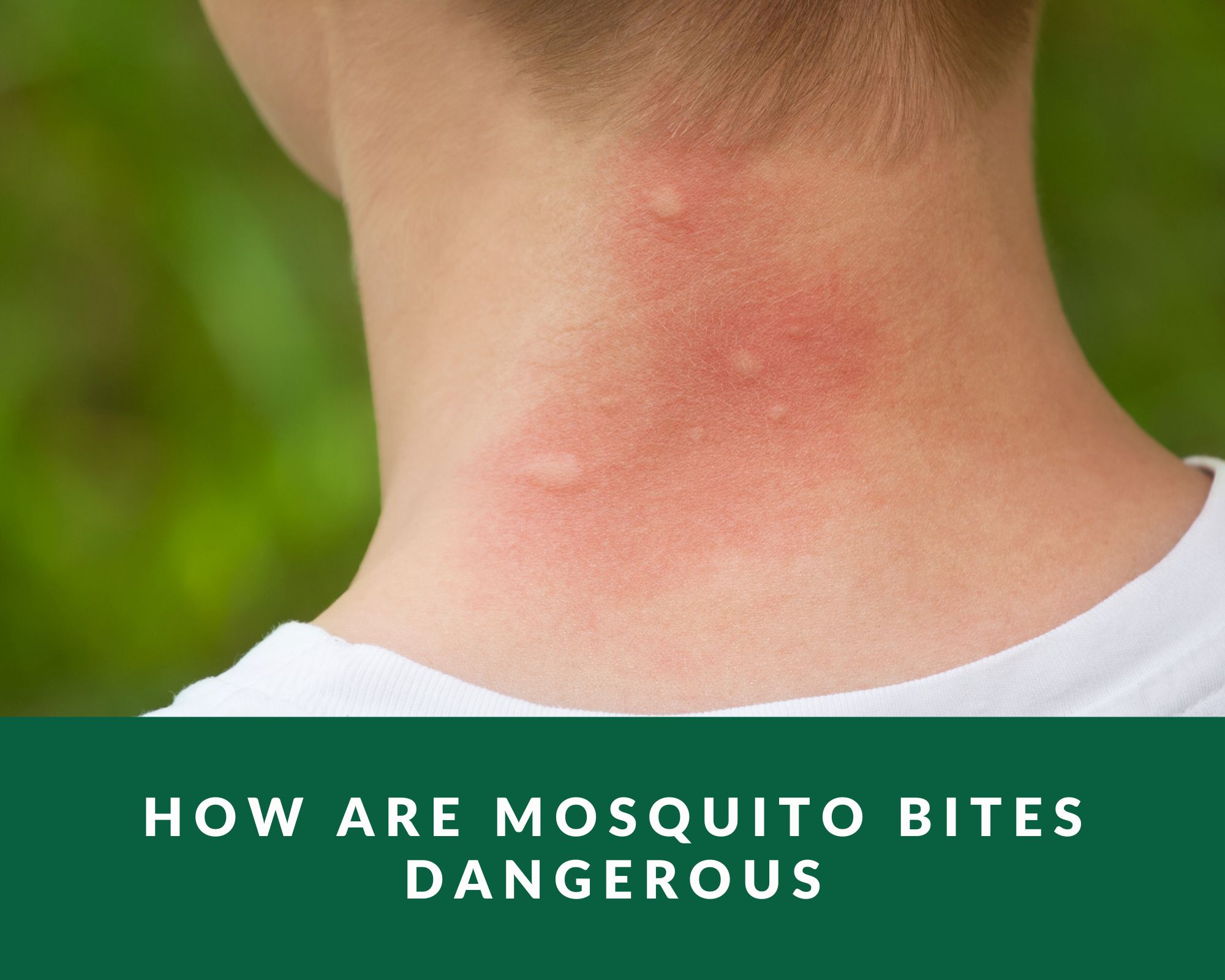
How are mosquito bites dangerous
In addition to their buzz, mosquitoes can also bite, which can be a bothersome and annoying experience when present. First off, mosquitoes don’t pose a threat to humans, but their bites do.
Not to mention that you can kill them with a newspaper curled up or a thin plastic square on the end of a wire handle. Not really something to be terrified of. The germs, viruses, and parasites that mosquitoes spread and, consequently, the diseases they result in, make them much more harmful.
How to recognize mosquito bites
Very quickly after a mosquito bite, symptoms usually develop. In fact, this is one of the characteristics that set these bites from those of some other insects, such as bed bugs. DO I HAVE BED BUGS OR MOSQUITO BITES? Although the way that a mosquito bite looks can differ from person to person, for the most part, it looks swollen, spherical, and white or red in color. Some might have a tiny dot in the middle. In addition to having irregularly curved edges rather than perfectly round ones, bites can also be dispersed.
Related: When To Worry About A Mosquito Bite
When are mosquito bites dangerous
The most harmful result of a mosquito bite is the possibility of contracting a deadly disease. The most deadly illnesses spread by mosquitoes include Dengue fever, Zika virus, malaria, and chikungunya, among others. How are mosquito bites dangerous? Let’s talk about some of the most severe and well-known illnesses and reactions brought on by mosquitoes.
1. Malaria
The most well-known tropical illness in the world is probably malaria. Plasmodium, which is primarily transmitted by the Anopheles mosquito, is the cause of the disease. Almost 40% of people globally are in danger of catching malaria since it is so deadly and spreads easily.
The illness develops in bursts of fever and exhibits a variety of symptoms, such as headaches, discomfort, sweating, and even diarrhea.
2. Dengue fever
The most widespread viral disease transmitted by a vector in the world, dengue is thought to infect between 50 and 100 million people worldwide annually and kill 25,000 people. It is a major contributor to disease and fatalities in the tropics and subtropics.
In some extreme cases, bleeding will develop from dengue fever, which can also cause pain in the joints.
3. Zika virus
The most recent of these mosquito-borne viruses to appear, the zika virus, infects most individuals without producing any symptoms or only a minor illness that may include fever, rash, and joint discomfort. But in growing fetuses of pregnant women who have the condition, the virus can cause severe neurological abnormalities.
Several children born to these moms have microcephaly, an uncommon disease in which a baby’s head is significantly smaller than usual. This birth abnormality can cause developmental problems that range in severity from moderate to lethal.
4. Skeeter syndrome
Mosquito saliva can cause allergic reactions in some people. The most typical kind is a more severe allergic reaction known as Skeeter syndrome, which is still confined.
These reactions might be anywhere between one and four inches in size. They can occasionally blister and hurt, and they are characterized by redness, itching, swelling, and warmth. In more serious situations, a fever and generalized exhaustion may develop.
Skeeter syndrome signs and symptoms often appear within a few hours of the bite and can worsen for up to 12 hours.
Nonetheless, Skeeter syndrome is rarely a cause for major medical concern. During three to ten days, it usually goes away on its own.
5. Chikungunya
The symptoms of this virus, which is similarly spread by the Aedes aegypti mosquito, include high fever, headaches, and joint stiffness that can linger for years. Sadly, there is no cure or effective treatment for chikungunya.
6. West Nile virus
Among those infected with the West Nile virus, between 70 and 80 percent never show any symptoms. Most people who do become ill experience a fever along with other symptoms including headache, body aches, joint pains, vomiting, diarrhea, or rash before recovering.
Related: Best Antihistamine for Mosquito Bites
Yet, that doesn’t mean it can’t be fatal. The main concern is that the West Nile virus, which affects less than 1% of patients, can result in life-threatening encephalitis, or brain inflammation. 10% of such individuals pass away.
Mosquito bite prevention tips
Over two to three months, many mosquitoes thrive. When it is below 50 degrees, the majority will either pass away or go into hibernation. They might be active all year round in regions of the planet with milder climates. To avoid being bitten by a mosquito and the diseases they spread:
- Wear light-colored attire.
- Apply insect repellant to your exposed skin.
- Get rid of any areas around your property where water might collect.
- Avoid standing water, which is where mosquitoes breed.
- Keep the water flowing in your pools and gardens.
- When sleeping outside, use a mosquito net or window screens.
- During dark and dawn, when mosquitoes are most active, stay inside.
What Next?
If someone discovers a mosquito bite If you or a member of your family is bitten and exhibits symptoms such as headaches, fever, chills, extreme fatigue, rigidity, muscle aches, forgetfulness, enlarged lymph nodes, vertigo, exhaustion, or skin irritation, it may be an indication that you have a more serious medical condition. They should seek medical attention right away.
Read also
How to Stop Mosquito Bites from Itching

